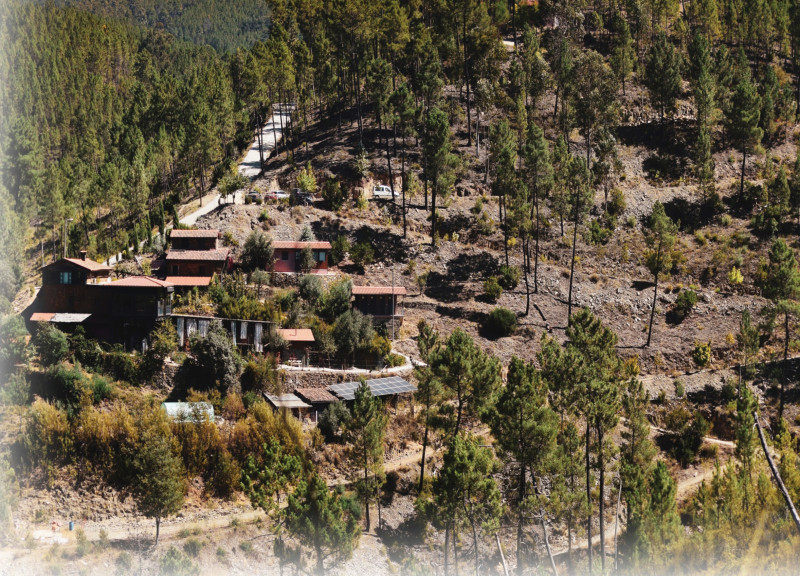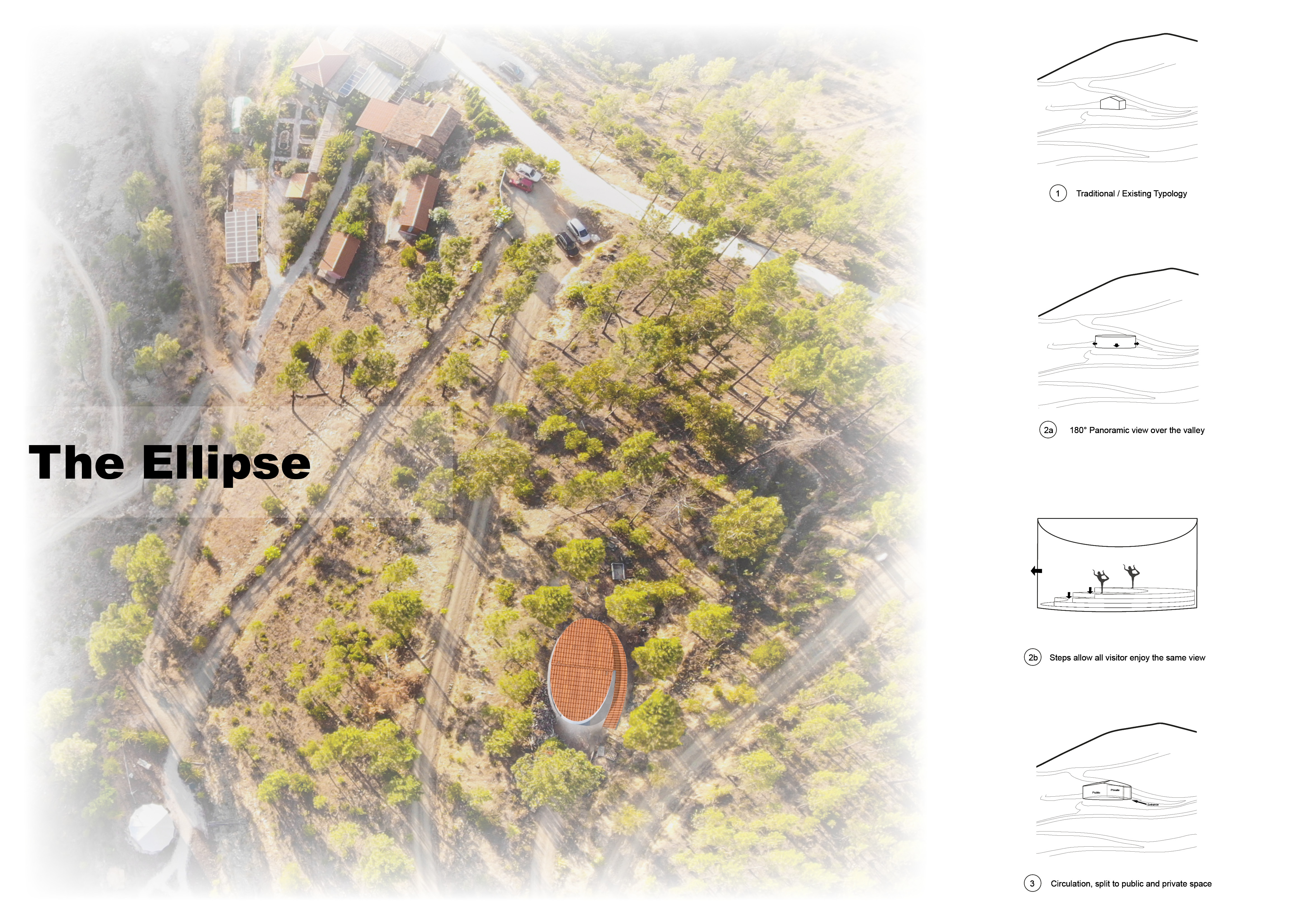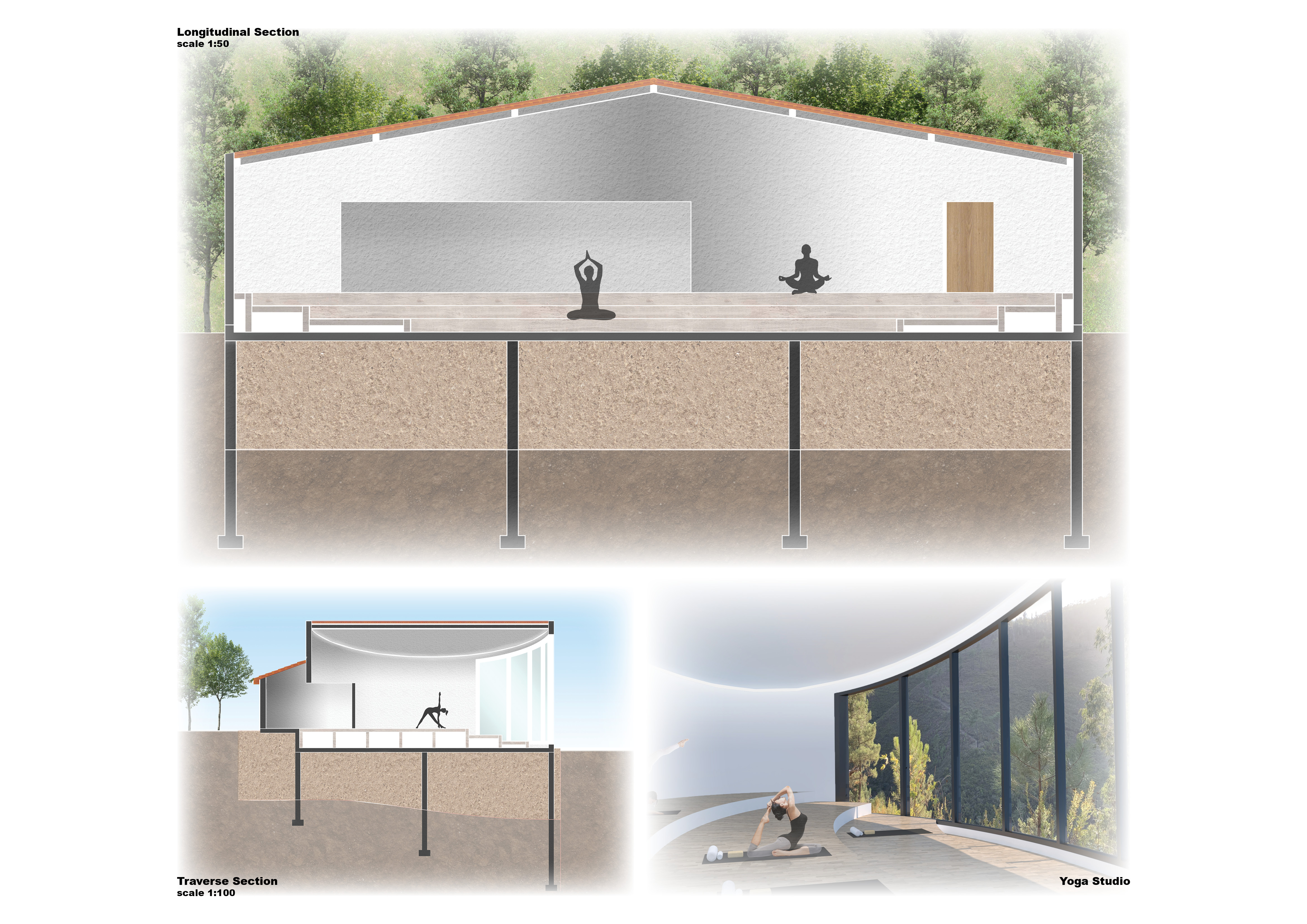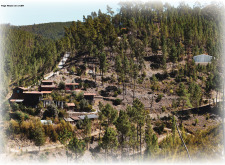5 key facts about this project
The essence of "The Ellipse" lies in its embodiment of tranquility and balance, reflecting the core principles inherent in yoga and wellness practices. The elliptical shape of the structure is not merely an aesthetic choice but serves to create a natural flow within the space, encouraging movement and interaction. This form allows for a seamless integration with the environment, echoing the organic curves found in the landscape. Furthermore, the layout fosters a sense of community through shared spaces while also providing opportunities for solitude and personal reflection.
Functionally, the project is thoughtfully designed to cater to the needs of its users. Key areas include a pantry that nourishes participants during their visits, alongside a storage space equipped to handle various wellness materials. The stepped studio is a standout feature, designed to accommodate multiple practitioners in a tiered arrangement that enhances visibility and connectivity. This approach not only enriches the experience for participants but also positions the instructor as a central figure in the space. The inclusion of bathroom and changing facilities underscores an understanding of comfort and practicality in wellness environments. An outdoor garden area extends the functional use of the property, encouraging users to engage with nature and practice their routines outside.
The architectural details reveal a commitment to materiality that reinforces the project's overall vision. The use of concrete as a primary structural element ensures durability, while expansive glass panels invite an abundance of natural light, effectively blurring the boundaries between inside and outside. Natural wood elements add warmth and texture, further cultivating a soothing atmosphere conducive to relaxation and mindfulness. Metal frameworks are likely employed to provide essential structural support, particularly in the context of elevated spaces, contributing to the aesthetic without overwhelming the design's organic intent.
Unique design approaches are prevalent throughout the project, particularly in how they prioritize environmental engagement. Large windows meticulously placed throughout the structure afford panoramic views of the valley, allowing occupants to absorb the surrounding beauty and calmness. The stepped design of the studio area not only facilitates enhanced interaction among practitioners but also ensures that each individual can fully engage with the experience, fostering a sense of collective practice while still allowing for personal space.
Attention to detail is apparent in the project’s flow and circulation patterns, which effectively distinguish public areas from more private spaces. This thoughtful separation promotes comfort and functionality while creating a welcoming environment where users can freely transition between different activities conducted within the building.
In essence, "The Ellipse" is a well-considered project that respects its natural surroundings, prioritizes user experience, and embodies the essence of wellness architecture. Its careful integration of organic forms, attention to materiality, and purposeful design contribute to a space that supports both communal gathering and individual practice. Readers interested in gaining a more in-depth understanding of this project are encouraged to explore the architectural plans, sections, and overall designs to appreciate the comprehensive vision behind "The Ellipse."


























